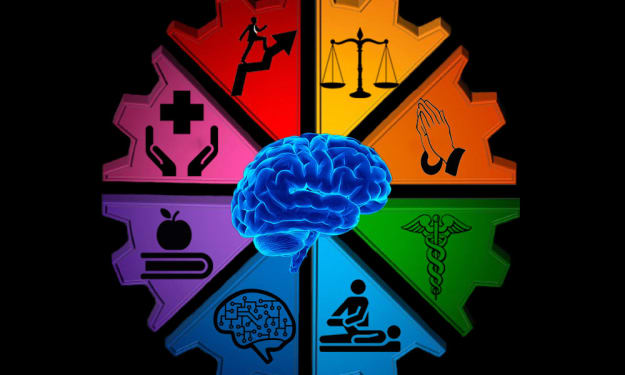Multiple Intelligences
Themes and Theories of Psychology

Gardner’s theory of multiple intelligence’s is the original theory of multiple intelligences that has gained traction in various disciplines such as psychology, education, and medicine. Gardner’s theory was introduced in his book titled Frames of Mind released in 1983 and then later refined in papers and other writing (Chen, 2016). Gardner’s theory states that there are approximately eight specific intelligences that he has identified so far (Hock, 2013). The eight intelligences identified so far are linguistic, musical, logical-mathematical, bodily-kinesthetic, spatial, interpersonal, intrapersonal, and naturalist (Hock, 2013). According to Hock (2013), many theorists have criticized Gardner’s theory for its apparent self-fulfilling nature in that any skill or talent could be worked into one of his intelligence categories. Gardner admitted that there are some limitations to his work and that it should be looked at as a stepping stone to better understanding of intelligence (Hock, 2013).
Gardner’s theory incorporates a set of criteria that can be used to define any new intelligence categories, with the caveat that most of the criteria, if not all, must be met (Hock, 2013). The criteria he listed includes existence of savants and prodigies, a set of info-processing operations specific to the intelligence, and ability to study the intelligence with psychological testing (Hock, 2013). Gardner’s theory is one of the most comprehensive and adaptable theories of intelligence which is why I chose to focus on this theory during my 24-hour self-report period (see Appendix 1).
During my self-report period, I began at 12:00am on a Thursday at which time I was deeply involved in homework for this and other courses. For that period, I used linguistic intelligence (which is focused on words and language), logical-mathematical intelligence (which uses mathematics, numbers, and logical processes to analyze abstract ideas and concepts), and spatial intelligence (which utilizes mental images and pictures) since I was working from a computer screen (Hock, 2013). Throughout the day I utilized bodily-kinesthetic, musical, and spatial intelligences while working out at the gym I recently joined. Bodily-kinesthetic is the use of physical abilities and musical is the recognition of musical sounds and symbols (Hock, 2013). I listened to music and watched a few anime episodes during my cardio, which is where the musical and spatial intelligences come into play.
Later in the day I went to work. I currently work at Longhorn Steakhouse in various jobs codes, and as such, I utilize many different intelligences throughout my shifts. While at work on Thursday afternoon, I utilized interpersonal intelligence (awareness of others’ emotions, feelings, etc.) and linguistic intelligence to talk to my mangers, coworkers, and the restaurant guests (Hock, 2013). I used bodily-kinesthetic intelligence to move around the restaurant, carry plates of food, and polish and roll silverware, as well as musical since there is constantly music playing in the background at Longhorn Steakhouse (Hock, 2013).
On my way home I listened to music and just took mental note of my day suing musical intelligence and intrapersonal intelligence (which is the ability to self-analyze and be aware of oneself) (Hock, 2013).
Overall, several intelligences come naturally to me. Interpersonal come naturally to me since I have worked in the customer service industry for several years and have built a skillset in that intelligence category (Hock, 2013). Musical, spatial, and linguistic intelligences come naturally as well. I have always loved music and constantly listen to something on the radio, iPod, or computer. Linguistic intelligence is a strength of mine, partially since I write not only for school assignments but also in my spare time, but also since I have been an avid reader since I was young with my fifth-grade self reading at a college reading level (Hock, 2013).
Although I have natural or acquired abilities in these categories, one intelligence that does not come naturally to me and that I can improve in is bodily-kinesthetic. While I have decent eye-hand coordination, my physical level of fitness and muscle control is left desiring something, hence my newly acquired gym membership.
References
Chen, J. (2016). Multiple intelligences. In H. L. Miller (Ed.), The SAGE encyclopedia of theory in psychology (pp. 582–585). Thousand Oaks, CA: SAGE Publications.
Hock, R. R. (2013). Forty studies that changed psychology (7th ed.). Upper Saddle River, NJ: Pearson.
About the Creator
Cobe Wilson
Gamer, writer, poet, academic.
Purchase photography or merchandise here!!! --> https://the-photography-of-cobe-wilson.creator-spring.com/






Comments
There are no comments for this story
Be the first to respond and start the conversation.